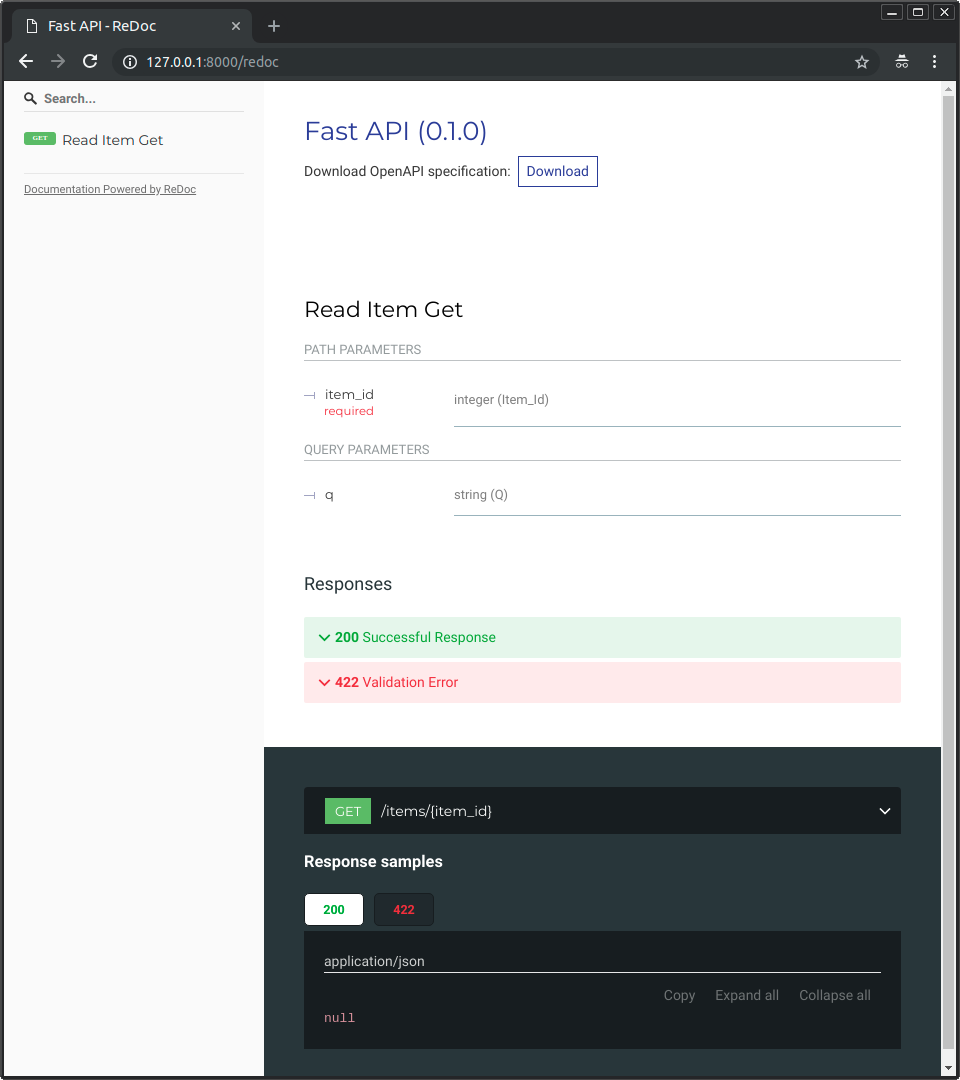- Sort Score
- Result 10 results
- Languages All
Results 321 - 330 of 497 for declare (0.04 sec)
-
CHANGELOG/CHANGELOG-1.4.md
* kubectl: ignore only update conflicts in the scaler ([#27048](https://github.com/kubernetes/kubernetes/pull/27048), [@kargakis](https://github.com/kargakis)) * Declare out of disk when there is no free inodes ([#28176](https://github.com/kubernetes/kubernetes/pull/28176), [@ronnielai](https://github.com/ronnielai))
Registered: Fri Dec 26 09:05:12 UTC 2025 - Last Modified: Thu Dec 24 02:28:26 UTC 2020 - 133.5K bytes - Viewed (0) -
docs/es/docs/tutorial/security/get-current-user.md
## Crear un modelo de usuario { #create-a-user-model } Primero, vamos a crear un modelo de usuario con Pydantic. De la misma manera que usamos Pydantic para declarar cuerpos, podemos usarlo en cualquier otra parte: {* ../../docs_src/security/tutorial002_an_py310.py hl[5,12:6] *} ## Crear una dependencia `get_current_user` { #create-a-get-current-user-dependency }Registered: Sun Dec 28 07:19:09 UTC 2025 - Last Modified: Tue Dec 16 16:33:45 UTC 2025 - 4.4K bytes - Viewed (0) -
docs/pt/docs/tutorial/security/simple-oauth2.md
Normalmente são usados para declarar permissões de segurança específicas, por exemplo: * `users:read` ou `users:write` são exemplos comuns. * `instagram_basic` é usado pelo Facebook e Instagram. * `https://www.googleapis.com/auth/drive` é usado pelo Google. /// info | Informação No OAuth2, um "scope" é apenas uma string que declara uma permissão específica necessária.
Registered: Sun Dec 28 07:19:09 UTC 2025 - Last Modified: Wed Nov 12 16:23:57 UTC 2025 - 10.3K bytes - Viewed (0) -
impl/maven-core/src/main/java/org/apache/maven/project/ProjectBuildingRequest.java
*/ enum RepositoryMerging { /** * The repositories declared in the POM have precedence over the repositories specified in the request. */ POM_DOMINANT, /** * The repositories specified in the request have precedence over the repositories declared in the POM. */ REQUEST_DOMINANT, }Registered: Sun Dec 28 03:35:09 UTC 2025 - Last Modified: Wed Jul 23 10:13:56 UTC 2025 - 7.5K bytes - Viewed (0) -
src/main/java/org/codelibs/core/lang/MethodUtil.java
&& method.getParameterTypes().length == 0; } /** * Returns the element type of the parameterized collection declared as the method's argument type. * * @param method * The method. Cannot be {@literal null} * @param position
Registered: Sat Dec 20 08:55:33 UTC 2025 - Last Modified: Thu Jul 31 08:16:49 UTC 2025 - 12.6K bytes - Viewed (0) -
impl/maven-core/src/main/java/org/apache/maven/plugin/BuildPluginManager.java
public interface BuildPluginManager { // igorf: Way too many declared exceptions! PluginDescriptor loadPlugin(Plugin plugin, List<RemoteRepository> repositories, RepositorySystemSession session) throws PluginNotFoundException, PluginResolutionException, PluginDescriptorParsingException, InvalidPluginDescriptorException; // igorf: Way too many declared exceptions! MojoDescriptor getMojoDescriptor(Registered: Sun Dec 28 03:35:09 UTC 2025 - Last Modified: Fri Oct 25 12:31:46 UTC 2024 - 2.3K bytes - Viewed (0) -
android/guava-testlib/src/com/google/common/testing/SerializableTester.java
* * <p>Note that the specified object may not be known by the compiler to be a {@link * java.io.Serializable} instance, and is thus declared an {@code Object}. For example, it might * be declared as a {@code List}. * * @return the re-serialized object * @throws RuntimeException if the specified object was not successfully serialized or * deserialized */Registered: Fri Dec 26 12:43:10 UTC 2025 - Last Modified: Sat Dec 21 14:50:24 UTC 2024 - 4.1K bytes - Viewed (0) -
docs/es/docs/index.md
 ## Actualización del Ejemplo { #example-upgrade } Ahora modifica el archivo `main.py` para recibir un body desde un request `PUT`. Declara el body usando tipos estándar de Python, gracias a Pydantic. ```Python hl_lines="4 9-12 25-27" from typing import Union from fastapi import FastAPI from pydantic import BaseModel app = FastAPI()Registered: Sun Dec 28 07:19:09 UTC 2025 - Last Modified: Tue Dec 16 16:33:45 UTC 2025 - 24.3K bytes - Viewed (0) -
docs/es/docs/tutorial/bigger-applications.md
{* ../../docs_src/bigger_applications/app_an_py39/routers/users.py hl[1,3] title["app/routers/users.py"] *} ### *Path operations* con `APIRouter` { #path-operations-with-apirouter } Y luego lo usas para declarar tus *path operations*. Úsalo de la misma manera que usarías la clase `FastAPI`: {* ../../docs_src/bigger_applications/app_an_py39/routers/users.py hl[6,11,16] title["app/routers/users.py"] *}Registered: Sun Dec 28 07:19:09 UTC 2025 - Last Modified: Tue Dec 16 16:33:45 UTC 2025 - 19.6K bytes - Viewed (0) -
docs/es/docs/advanced/custom-response.md
devuelves un `Response` directamente (o cualquier subclase, como `JSONResponse`), los datos no se convertirán automáticamente (incluso si declaras un `response_model`), y la documentación no se generará automáticamente (por ejemplo, incluyendo el "media type" específico, en el HTTP header `Content-Type` como parte del OpenAPI generado). Pero también puedes declarar el `Response` que quieres usar (por ejemplo, cualquier subclase de `Response`), en el *path operation decorator* usando el parámetro...
Registered: Sun Dec 28 07:19:09 UTC 2025 - Last Modified: Wed Dec 17 20:41:43 UTC 2025 - 13.2K bytes - Viewed (0)